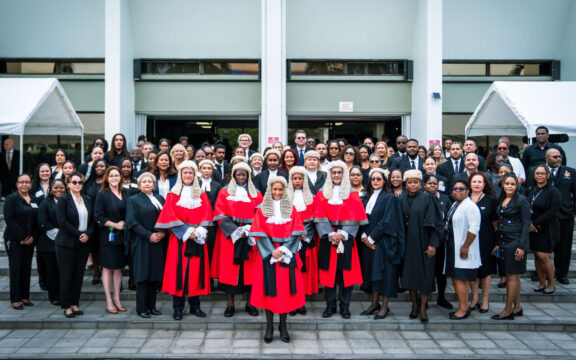
Mediation
What is Mediation?
Mediation is a process in which an impartial third party, the mediator, facilitates communication and negotiation and promotes voluntary decision-making by the participants in the dispute. In mediation, a mediator helps participants understand each other’s perspective and discuss options for settlement. Mediator does not decide who is right and who is wrong. The mediator has no authority to impose a settlement on the parties. The mediator simply listens, asks questions, explores ideas for solutions, and helps the participants themselves come to agreements.
Because the mediation process is confidential, the participants are able to negotiate freely, knowing that unless they reach a settlement, no one, including the Judge or Magistrate, will know what each may have offered to concede in order to reach a settlement. Idea generation is encouraged so that different possible solutions can be evaluated and assessed by both participants working with a mediator in the mediation session.
Mediation has been particularly successful in family law matters. The participants are the experts on their children and know the other important considerations that are involved with separating into two households. In most cases, it is preferable for parents to decide between themselves how to raise their children rather than having the court make those decisions. Both parents and children stand to benefit from a mediated resolution of a family dispute, children by seeing their parents work cooperatively to plan for the future, and parents by learning better communication and problem solving skills.

How Mediation Helps
- It gives you more say about what happens in your case;
- It’s less stressful, with less conflict between you and the other participant;
- It can be less upsetting or damaging for any children involved – and helps them continue important family relationships;
- It can be less costly and time consuming than long, drawn out court appearances;
- It avoids going to court to sort out your issues and, when the Judge or Magistrate makes the decisions, you will need to comply with those decisions even if one or both of you are unhappy about them;
- Mediation tends to result in lasting agreements because the participants have produced them; and,
- You don’t give up other options by mediating. You may still pursue a court determination should mediation not be successful.
How Does Mediation Work?
The mediation session usually begins with both parties, and their attorneys if they choose to have one, meeting together. From time to time, the mediator may determine it may be helpful to meet separately with each party. During these private meetings, the mediator may ask difficult questions, attempting to more deeply explore a particular issue or issues. This same type of exploration occurs with both sides. Again, it is solely to help parties assess their interests and how strongly they are attached to certain concerns. The separate private sessions are also confidential, and the mediator will not relay anything learned in a private meeting without having been given authority to convey it to the other participant.
A mediation session typically lasts about three hours, but may be longer or shorter, depending on the issues. A mediation session that runs short on time can be rescheduled for additional time provided the participants and mediator feel progress is still possible.
If an agreement is reached, the mediator may help the parties reduce it to writing on pre-approved forms. If the parties have lawyers, the lawyers may draft any written agreement. Once an agreement is drafted, reviewed, and signed by all participants, it normally will be made an order of court, once submitted and reviewed by a Judge or Magistrate.
Are You Eligible?
Illustrate the following (family cases only), a Judge or Magistrate will expect you to consider and utilize mediation before you apply to court to hear your case. A Judge or Magistrate can refused to hear your case until you have done this. Despite the clear success mediation has brought to the court process, not all cases are appropriate for mediation. Mediation is not required where the presence of the following impediments to mediation hinder the ability of a party to negotiate safely, competently, or in good faith:
- Domestic abuse
- Intimidation
- Substance abuse
- Child abuse
- Mental illness
- Cognitive impairment or other impediment
How to Prepare for Mediation
Consider these questions before your session:
- What is the conflict really about for you?
- How does your view of it change if you try to look at it from the perspective of the other party?
- If the dispute involves your child or children, what do you think are the most important needs and interests of the child or children?
- Are some of the conflicts that exist caused by misunderstandings or hurt feelings?
- What information, documents, or other things might cause the other party to change his or her mind about the issues you disagree about?
- What might cause you to change your mind?
- What do you want to achieve through mediation?
- What do you need to convey to the mediator to help him or her understand your concerns?
- What do you think the other party needs to feel satisfied?
- If you can reach an agreement in mediation, how will that agreement affect your relationship with the other party? Conversely, if you don’t reach an agreement, what likely will happen, and how will that impact you, the other party, and your child or children?
- What is the best possible alternative that could occur and the worst possible alternative that could occur in court? How much are you willing to risk to see what actually occurs, and is the time and expense worth it when you can participate in reaching an agreement that you can rely upon?
- What would you need to feel comfortable reaching and signing an agreement? Is there any one you would have to call or check with before finalizing an agreement?
- What might you say or do that would upset the other participant and what might that other participant say or do that would upset you? Then think about what you can do to avoid getting upset and causing upset to the other participant.
- If you were to advance the clock by ten years and then look backward over the ten year period, what would you want for your children and how important are the issues in dispute when looked at from that perspective? Does this change how you look at resolving your case?
Request Mediation
Contact us by emailing mediation@judicial.ky to request a mediation to help you resolve your family conflict.







